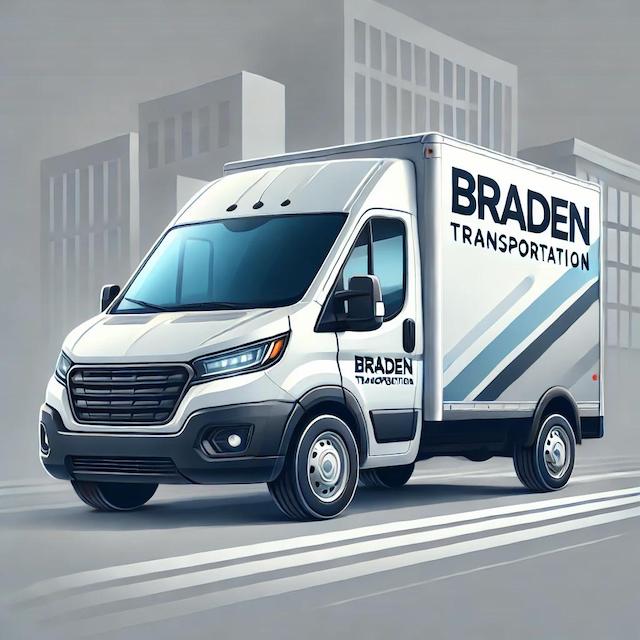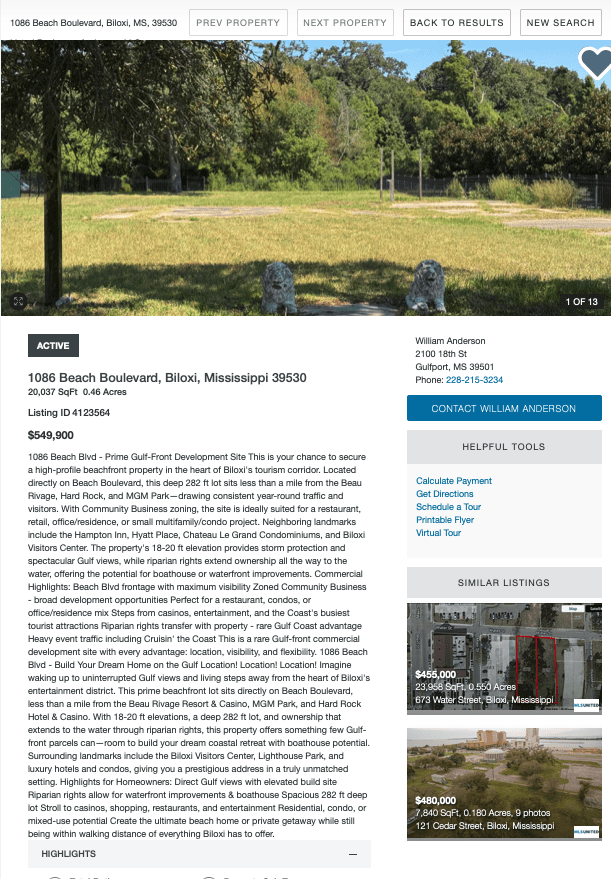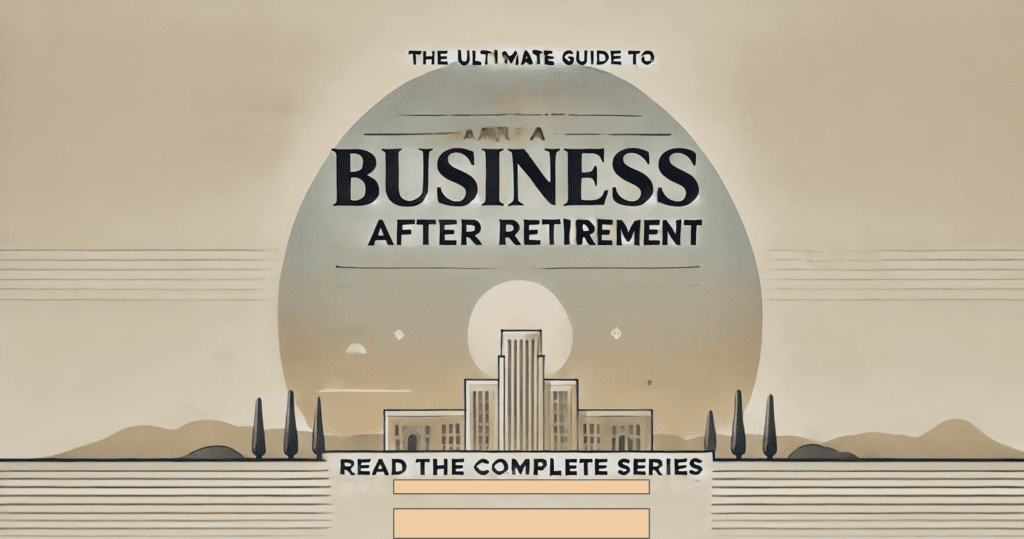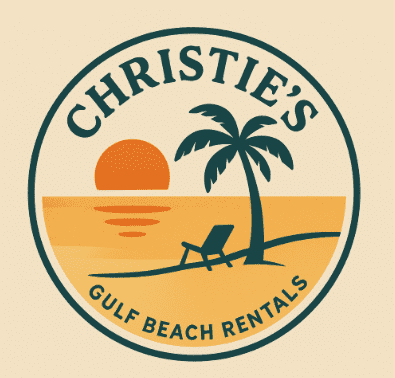Last updated on December 8th, 2025 at 07:23 am
Retirement opens the door to many possibilities, and choosing the right business is an important decision. This article explores various options, helping you determine what business best aligns with your skills, experience, and interests.
Many retirees have a wealth of knowledge in a particular industry but feel drawn to something new. If that sounds like you, you’re not alone. I took the same path—I spent 23 years as an expert in the hazardous waste industry before deciding to walk away and start something completely different.
Starting a business after retirement
This article is the second in a series which can help you decide and get started creating your business after retirement

Sufficient funds to start your business
As our foundation article which you can read by clicking here states, the type of business you get into is based upon your financial situation. A lot of people who retire from their full-time jobs have sufficient retirement savings resources to sustain them through the start-up costs phase of a business.
Some need the money from a new business after retirement and others just want to do something useful and make some extra money. Assuming you have read our foundation article, let’s get into the subject.
After retirement business ideas are many. You may not have any now but by the time we finish with this article, you will have a good idea about what you want to do. Reading articles such as this is a great way to start a successful business.
The following is a short list of possible new business opportunities. It is by no means complete. And, you may think of a niche that is not being filled and create an entirely new category:
Top 40 Business Ideas for Retirees
Service-Based Businesses
Consulting Services
Share expertise from your professional career.Virtual Assistant
Provide remote administrative support.Freelance Writing or Editing
Write blogs, books, or articles for clients.Life Coaching
Help others achieve personal or professional goals.Financial Planning Services
Assist clients with budgeting, investments, and retirement planning.Senior Care Services
Offer companionship or mobility assistance.Handyman Services
Provide minor home repairs and maintenance.Pet Care Business
Offer pet-sitting, grooming, or dog-walking services.Home Organizing Services
Help people declutter and organize their homes.Event Planning
Plan weddings, parties, or corporate events.
Retail and E-Commerce Businesses
Online Store (E-commerce)
Sell handmade goods, vintage items, or niche products.Dropshipping Business
Sell products online without managing inventory.Handmade Crafts Business
Sell items like jewelry, candles, or home decor.Antique or Vintage Store
Buy and resell antiques online or in a small shop.Farmers Market Vendor
Sell produce, baked goods, or artisanal products.Bookstore or Online Book Sales
Curate a collection of used or rare books.Boutique Clothing Store
Sell specialty clothing, either online or in person.Print-on-Demand Store
Design and sell custom merchandise like t-shirts or mugs.Subscription Box Service
Curate niche products for a monthly subscription service.Bed & Breakfast (B&B)
Turn your home into a cozy lodging space.
Real Estate Businesses
Real Estate Investment
Buy, manage, and sell properties.Property Management
Manage rental properties for absentee owners.Vacation Rental Management
Manage Airbnb or short-term vacation rentals.Real Estate Agent
Help clients buy or sell properties.Real Estate Investment Consulting
Guide others on investment strategies.
Educational and Tutoring Services
Online Tutoring
Teach subjects like math, science, or languages.Music Lessons
Teach piano, guitar, or other instruments.Art or Craft Classes
Host workshops for painting, pottery, or crafting.Language Instruction
Teach English or another language online or in person.Computer and Tech Training
Help seniors or beginners learn tech basics.
Health and Wellness Businesses
Fitness Coaching
Offer personal training or yoga classes.Nutrition Consulting
Help clients plan healthy diets.Massage Therapy
Offer relaxation or therapeutic massage services.Wellness Retreats
Organize getaways focused on health and self-care.Holistic Healing Services
Provide services like Reiki or meditation coaching.
Creative Businesses
Photography Business
Capture events, portraits, or real estate images.Podcasting
Share your expertise or stories through audio content.YouTube Channel
Create engaging videos around a hobby or expertise.Blogging
Write about travel, retirement, hobbies, or personal experiences.Self-Publishing
Write and publish books, memoirs, or guides.
You may be one of those baby boomers who just can not sit on the beach with an umbrella drink. Now is the perfect time for you to consider what you want to do in your next phase of life. I look at the later years this way. As people age and move into their later 50’s the thought of retirement creeps into many discussions.
As you reach your early 60’s you may know when you will retire but think that you will work out the rest later. One thing that may come to mind is what you will do after you are no longer driving to work every day.
The next phase of retirement meant actually leaving that 40-hour-per-week career and starting on that road to freedom. This assumes you have property planned for retirement and do not need to work. You and your spouse have no serious health issues, those Social Security Benefits are flowing along with passive income from your brokerage account and 401K.
Your most productive years are before your mid 80’s
At this point, you have the years until your early 80’s which may be the most productive, and the years you want to fill with a home-based business after retirement or create a sole proprietorship or limited liability company. At some point, your age and health may catch up with you so it’s important that you plan and execute your plan early. This is particularly true if you need to obtain some education before you start.
Considering Business Models for Financial Necessity
If you’re starting a business because you need to supplement your retirement income, time is of the essence, and every decision counts. The type of business after retirement you choose should align with both your financial resources and the amount of time you’re willing to invest. Below are several categories worth considering:
- Part-Time Reselling Business
- Buy items from platforms like Facebook Marketplace and resell them at local flea markets.
- This type of business requires minimal capital, and sales typically occur on weekends.
- Consulting Business
- Use the expertise you’ve gained over the years to offer consulting services.
- Startup costs are often limited to setting up a website and professional email address.
- Retail Business (e.g., Restaurant or Boutique)
- Retail businesses often require significant financial and time investments.
- You may need support from family and friends to manage the labor-intensive aspects.
- Senior Care Services
- Offer senior care services in a group home or your large residence.
- Startup costs include equipment, professional staff (e.g., nurses), and compliance with local regulations.
- Small Manufacturing Business
- If you have experience in a particular trade or craft, consider small-scale manufacturing.
- This may require significant startup capital and time, but your experience will be a strong asset.
- Event Planning Business
- Use skills from previous roles, such as corporate event management, to plan events independently.
- Event planning often has a low financial entry point but relies heavily on your network and expertise.
- Landscaping Business
- Do something fun, if you have experience working in your own yard, offer it to others.
- Use your own equipment, lawnmowers, etc. Now you can buy that pick-up truck you have always wanted.
- Trimming trees is a very big business in some areas of the country. Read this article
- Custom Mail Boxes
- Create custom mailboxes and sell them through the internet or local flea markets
- Custom mailboxes are always in demand. Check out this article about mailboxes.
When choosing an after-retirement business model, think about the scale of your operations. Will your business remain small and manageable, or are you aiming to build something larger that you can eventually pass on to your children? The most successful retirement businesses will typically leverage the skills, knowledge, and experience their owners have developed over the years.
Top 10 Low-Cost, Quick-Start Business Ideas for Retirees
These businesses require minimal capital, can be launched quickly, and are perfect for retirees looking to supplement income or stay active without significant financial risk.
1. Freelance Consulting
- Startup Costs: Minimal (website, email, business cards).
- Quick Start Tip: Use your professional expertise to offer consulting services in fields like finance, marketing, or management.
- Example: Help small businesses improve their operations or mentor young professionals.
2. Virtual Assistant Services
- Startup Costs: Low (computer, internet, basic software).
- Quick Start Tip: Offer administrative services such as email management, scheduling, and data entry remotely.
- Example: Support entrepreneurs or busy professionals from home.
3. Reselling Online (e.g., Facebook Marketplace, eBay)
- Startup Costs: Minimal (initial inventory, shipping supplies).
- Quick Start Tip: Buy secondhand items locally and resell them online for a profit.
- Example: Flip furniture, electronics, or collectibles.
4. Content Writing or Blogging
- Startup Costs: Low (domain name, hosting, or free blogging platforms).
- Quick Start Tip: Write blog posts, website copy, or eBooks based on your expertise or interests.
- Example: Create a blog about travel, finance, or retirement living.
5. Online Tutoring or Teaching
- Startup Costs: Minimal (video conferencing tools, teaching materials).
- Quick Start Tip: Teach subjects you excel in, such as math, English, or music, through platforms like Zoom or Teachable.
- Example: Offer virtual piano lessons or SAT tutoring.
6. Social Media Management
- Startup Costs: Low (computer, internet, basic tools).
- Quick Start Tip: Help small businesses manage their social media accounts and create engaging content.
- Example: Run Instagram or Facebook campaigns for local businesses.
7. Pet Sitting or Dog Walking
- Startup Costs: Minimal (insurance optional, marketing materials).
- Quick Start Tip: Start by offering services to friends and neighbors.
- Example: Provide daily walks, feeding, or overnight care for pets.

8. Handyman or Home Repair Services
- Startup Costs: Low (basic tools, marketing).
- Quick Start Tip: Focus on small repairs, furniture assembly, or light maintenance tasks.
- Example: Fix leaky faucets, install shelves, or do minor painting jobs.
9. Photography Services
- Startup Costs: Low (camera, basic editing software).
- Quick Start Tip: Start with family events, headshots, or real estate photography.
- Example: Offer services for birthdays, portraits, or local businesses.
10. Personal Fitness Training or Yoga Instruction
- Startup Costs: Minimal (certification optional, fitness gear).
- Quick Start Tip: Host classes in parks, community centers, or virtually.
- Example: Offer one-on-one sessions or group yoga classes.
11. Cleaning Vacation Rental Properties
- Startup Costs: Minimal (supplies)
- Quick Start Tip: Learn from parents and others about cleaning
- Example: Contact property managers. Read this article
12. Residential Rental Property Investing
- Startup Costs: Can be substantial for down payment, closing costs, and repairs
- Quick Start Tip: Take Keyladder’s course and read this article about your first property
- Example: Take the course, read articles, and follow suggestions about working with a property manager essential at least when you start out.
Key Takeaways for These Business Ideas:
- Minimal Investment: All these ideas require little upfront capital.
- Quick to Launch: You can start most of them within weeks if not days.
- Scalable: You can grow these businesses gradually based on your time and financial goals.
- Flexible: Many can be run part-time or full-time, depending on your lifestyle.
If you want to see how these principles can play out in real life, read my story in our starter article. I transitioned from managing a national corporation in hazardous waste to thriving in real estate, property management, and consulting. Your journey can be just as rewarding—all it takes is a clear vision and the determination to follow through.
I could have created something in the same space (market or category) that I worked in for 25 years. I decided instead to use the expertise that I had gained working with property leases, personal property investments, and the occasional consulting work with new after-retirement business owners. While it may seem to some that I jumped into something that I was not working at full time for the past few decades they would be wrong.
Create your business plan after you have decided what you want to do. Check out our article in this series about creating your business plan.
Example of how your experience can work for you
Assuming that you have decades of experience working in a space such as managing a unit for a large company in the trash hauling business. That local unit was responsible for collecting trash from homes and moving it to recycling or disposal. You were in the trash business, correct?
While this is true, you were also in the recycling business, the transportation business, the business of working with the public, and more. When you break down the elements of the business you managed there seem to be many businesses rolled into one.
You became an expert at many businesses without realizing it. Narrow your focus and think about which one of these business activities may be an opportunity for you to start your own version. Perhaps the fact that you managed truck drivers and truck maintenance is of interest. Perhaps you want to start a business where goods and/or services must be moved from point A to point B.
Create a business and help others
One of my pet things is education specifically the lack of financial literacy in graduating seniors. Frankly, these soon-to-be adults have little knowledge about how to manage money and that is a big problem. You may ask why parents do not teach their children about financial issues. Simply put, parents know only a little more than their children.
Most parents of high school students learned the hard way. They overspent their credit cards and had trouble buying cars and getting loans in their earlier years. Over time, they learned enough to keep things afloat. Also, there is this thing about kids not listening to their parents.
I suggest that people with experience in financial literacy create a Tudor business and offer their services to individuals, businesses, and schools. Years ago when I owned and managed a company, I spent time coaching employees. There is a great need for this type of business. Also, consider giving free seminars to get people to sign up. Parents should be thrilled to sign up their teenagers for a few hundred dollars.
Great schools that produce literate students improve the local economy. Financial literate students can form new businesses just as you are doing.

Your expertise in transportation can work in your favor
You could start a home delivery business for local restaurants such as pizza companies. Why do they want to hire drivers when you can offer drivers and they do not have to manage them? After all, their expertise is baking not managing transportation. You hire their drivers, outfit them with vehicles and training and you are off. Why not, you have managed drivers before.
This is what I mean by doing a deep dive into the expertise you already have and how to leverage that experience to start a new business. Of course, you could have been managing a trash company operation and decided to leap into something completely different such as writing a blog.
You are held back only by your own imagination. If you want to be your own boss in your retirement years and earn extra income, investigate your options.
Take an inventory of your experiences
If you have a sense of purpose and want to pursue something that gives you complete control, start by working on that solid business plan. Begin by taking an inventory of your previous experience. You may not end up doing something related to your past career but it’s a good place to start.
Look at the business model for the type of business that interests you. It’s likely others somewhere have created a business using someone else’s idea and made it better.
It’s important that you ask important questions such as: Is there a need for what I want to offer? How long to make it work and produce financial benefits? Your personal finances may dictate the type of business you go into. Many retirees look to home businesses first because they offer lower start-up costs. Use your own home as a base to start if it works into your plans.
Use the Inventory of Skills Worksheet below
A successful company offers goods and services that people want
Remember that a successful company offers goods and or services that people want. If there are three pizza restaurants within a few blocks of your desired location, why not start up where there are none? If the product you want to sell is already being sold by sellers who have economies of scale and can undercut your pricing, consider something else.
You need a competitive advantage, something that brings people to your business rather than competitors. What is that competitive advantage? What makes your dog walking business better than someone else’s? Perhaps you belong to the National Association of Professional Pet Sitters.
Consider traveling to another area of the country to investigate how an existing business has been able to offer what you want to offer in your area. Speak to the owner. Most business owners are happy to talk to prospective business owners if they are not going to be competing. The best part is that you will learn what to avoid. If you can not travel, call. You can also check the internet.
Case Study: From Side Hustle to Full-Time Home Maintenance Business
One day, I found myself helping a friend who had been repairing air conditioning units as a side hustle. He was great at what he did, but I could see the potential for something much bigger. After a long conversation, he decided he was ready to transition from side work to running a full-time business.
Researching Success Stories
I told him the best way to get started was to understand how successful businesses in his field were structured and what they offered their clients. After some online research, I came across a standout air conditioning business in another state. Their website was professionally designed, their services were well-detailed, and their branding was top-notch.
The real turning point came when the business owner agreed to speak with my friend and share valuable advice. That conversation laid the foundation for what was to come.
Building the Business Framework
We got to work on the essentials: organizing the legal side of the business, selecting a strong and memorable name, and building a professional website. He also invested in an online system to streamline billing, pricing, and scheduling.
But the transformation didn’t stop there. We dug deeper and mapped out his expertise. It became clear that his core value lay in serving homeowners, not just fixing AC units.
Expanding the Business Vision
With this realization, he expanded his services beyond air conditioning repairs. He started offering roof inspections, minor plumbing fixes, and addressing other maintenance issues he’d often noticed while working on AC systems.
His business evolved into what is now called XXXXX Home Maintenance. It’s a comprehensive service that covers a wide range of homeowner needs. When he encounters tasks outside his expertise, such as electrical work or drywall repairs, he hires skilled, licensed contractors from a carefully curated list he’s built over time.
Lessons Learned
- Learn from Others: Find successful businesses in your field and study their structure and services.
- Invest in the Right Tools: A good website and billing system can streamline operations and attract clients.
- Map Your Expertise: Identify your strengths and build your business around them.
- Know When to Delegate: Bring in trusted contractors when specialized expertise is needed.
Reflections on the Journey
Looking back, this experience taught me that success often begins with a willingness to learn and the courage to take action. My friend’s journey from side hustle to a full-time home maintenance business is proof that with the right guidance and mindset, anyone can build something meaningful.
If you’re considering a similar path, don’t hesitate to reach out to someone with experience. Look for mentors, retired professionals, or even place ads on online platforms seeking guidance from someone who’s walked the road before.
You have expertise as the example indicates above in transportation but you do not understand accounting or banking and lending. That’s ok, business ownership does not mean that you have expertise in 100% of the business. The fact that your expertise tells you when you need help and where to get it fills in the gaps.
Consider inventing something. Inventors are few and far between but if you are one of those people who can create a new product or service that no one else has been able to do, go for it. I know someone who has created several patents. Some of his ideas have brought him millions of dollars and others nothing.
Some ideas have taken decades to come to the surface and work while others of his were instant successes. If you have been working for a company and developing products for them, why not develop for yourself?
The following new business start-up checklist can help you organize your ideas.
Real-World Example: 1086 Beach Blvd, Biloxi, MS
If you want proof that location, location, location really is the secret ingredient for business success, look no further than a current listing in Biloxi, Mississippi.
At 1086 Beach Boulevard, you’ll find a prime Gulf-front development site—a vacant lot directly across from the busiest stretch of beach on the Mississippi Gulf Coast and less than a mile from world-class attractions like the Beau Rivage, Hard Rock, and MGM Park. It’s also surrounded by hotels, condominiums, and the Biloxi Visitors Center, putting it in the middle of nonstop tourism and year-round foot traffic.
Why This Property Proves the Point
I’ve done the analysis, and this isn’t just another empty lot:
- Feasibility confirmed – A restaurant building and parking can be placed on the site.
- City-approved zoning – The parcel carries Community Business zoning, which allows for restaurants, retail, office/residential mix, or even multifamily development.
- Market gap – The closest restaurant is at least a half-mile away, leaving a clear opening to serve beachgoers, hotel guests, and event visitors.
- High visibility – Beach Blvd frontage ensures thousands of cars and pedestrians pass by daily.
- Built-in resilience & perks – Elevated 18–20 feet for storm protection and riparian rights that extend ownership to the water, with potential for waterfront improvements.
What This Means for Retirees
This property shows how the right location creates opportunity before a single brick is laid. A retiree with the vision to place a restaurant here could capture heavy demand in an underserved area — not because the food concept is revolutionary, but because the location guarantees visibility and traffic.
This is the core lesson for anyone thinking about a second-act business:
- You don’t need the “perfect” idea.
- You need the perfect place to launch it.
The Biloxi lot proves that such locations exist. For retirees ready to start something new, securing the right site can dramatically improve your odds of success.

New Business Startup Checklist
This checklist will guide you step-by-step in launching your new business successfully. Mark off each item as you complete it.
Frequently Asked Questions
1. What is the best business to start after retirement?
The best business depends on your skills, interests, and investment capacity. Popular options include consulting, freelancing, online businesses, and franchise ownership.
2. What are the easiest businesses to start in retirement?
Low-cost, low-maintenance businesses like online courses, blogging, affiliate marketing, and coaching require minimal startup effort.
3. What business can I start with little to no money?
Service-based businesses such as consulting, virtual assistance, and tutoring require minimal upfront investment.
4. What business is best for passive income?
Real estate investing, dividend stocks, dropshipping, and digital product sales are great for passive income.
5. What are the best online businesses for retirees?
Popular online businesses include e-commerce, blogging, YouTube, affiliate marketing, and self-publishing.
6. What franchise opportunities are good for retirees?
Franchises in home services, senior care, cleaning, and food businesses are great options for retirees.
7. What business can I run from home?
Home-based businesses include freelance writing, consulting, online coaching, and print-on-demand stores.
8. What is a good business for a retired couple?
A bed and breakfast, rental properties, an online store, or a travel agency can be great for couples.
9. What are good side businesses for extra income in retirement?
Side businesses like Airbnb hosting, tutoring, pet sitting, and selling handmade crafts can generate extra income.
10. What business has the lowest risk for retirees?
Consulting, online coaching, and freelancing have low financial risks and require minimal investment.
11. What are the best travel-related businesses for retirees?
Travel blogging, travel agency services, RV rentals, and group tour planning are excellent choices.
12. What business can I start with my professional skills?
If you have expertise, consulting, coaching, and freelance work in your field are great options.
13. What are good health-related businesses for retirees?
Health-related businesses like wellness coaching, personal training, and caregiving services are in high demand.
14. What business can I start with my hobbies?
Turn hobbies like woodworking, painting, gardening, or baking into a profitable business.
15. What are the most rewarding businesses for retirees?
Businesses that give back, such as non-profits, mentoring, and community services, are highly fulfilling.
Next Steps to Creating Your After-Retirement Business
Our first installment in the series discussed the overall concept of a business after retirement. This article covered the type of business you may be interested in starting. The next article will show you how to create an actual business after retirement using consulting as an example. This includes creating a business plan.
Consider starting your business after retirement on the Mississippi Gulf Coast. Mississippi was recently named #4 best state to start a new business.

Read more articles in this series
Click the button below to reach the INDEX: Starting a Business After Retirement
We will be adding videos to further explain some of the processes and procedures to create a successful business. Please sign up on our home page to receive notice of new articles.
One last thing. If you decide to start a business after retirement, have fun!
Discover more from RetireCoast.com
Subscribe to get the latest posts sent to your email.










